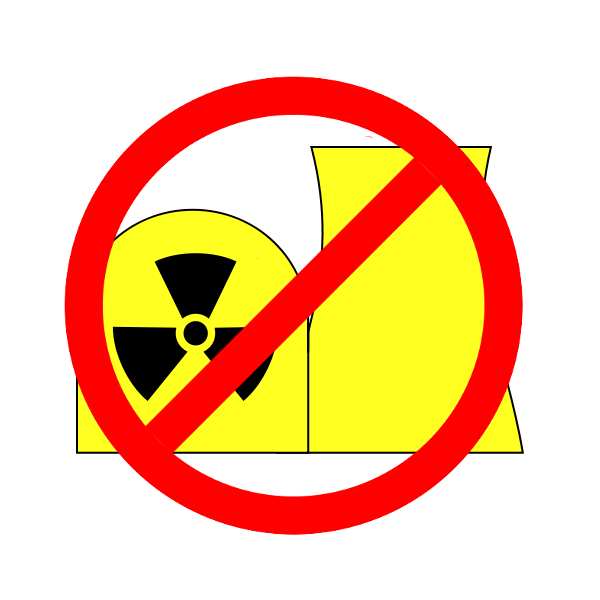I have covered some of the problems with nuclear weapons, uranium mining and uranium processing in previous posts. Today I am going to briefly list some of the major problems with nuclear reactors used for power generation. This list is not meant to be exhaustive but if there were no other problems with nuclear power, these alone would be enough to justify shutting it down.
Many minor accidents with a variety of causes have plagued the nuclear power industry. Though low in probability major nuclear accidents do happen and can threaten the health of millions and large areas of the natural environment. Chernobyl and Fukushima are dramatic examples of what can happen.
Calculations of the cost of nuclear power often don’t include the governmental subsidies, the wildly fluctuating cost of uranium, environmental degradation, the health costs of accidents, the problem of nuclear waste and the cost of decommissioning nuclear power plants. When everything is taken into account, nuclear power is not cheaper than renewable alternative energy which don’t have the dangers.
When mining, processing, transport, construction, waste handling and decommissioning are taken into account; nuclear power is not as beneficial to reducing carbon dioxide emissions as has been advertised.
Huge amounts of water are needed to cool nuclear power plants. Some of the rivers that supply water to cool power plants have insufficient flows to allow plants to operate at peak power all the time and the situation will just get worst. Recently the rising temperature of the ocean due to global warming caused the shutdown of a nuclear power plant that drew cooling water from the ocean.
The big corporations that run the nuclear power plants are often guilty of incompetence or callous disregard in following proper procedures in the construction of power plants, their regular and safe operation and response to emergencies.
Government agencies that are supposed to inspect and regulate nuclear power plants and to punish infractions by plant operators are often guilty of incompetence or even deliberately ignoring infractions and handing out light punishment when infractions are recognized.
The spent fuel pools of nuclear reactors are filling up with spent fuel rods and, without permanent nuclear waste disposal facilities, when these pools are full, reactors will have to be shut down until sufficient temporary storage can be constructed.
Most of the currently operating reactors are approaching the end of their intended lifespan. Either they will have to be shut down, decommissioned and replaced with new reactors with all the attendant costs and problems or they will have to be relicensed and continue to operate as they age and deteriorate, increasing the danger of a major accident.
Because the construction and operation of new reactors has been slowing in recent decades, interested in jobs in the industry has been declining as well. There is a shortage of nuclear engineers in the world today to replace the current aging operators at nuclear power plants.
One of the problems that does not get enough attention is the fact that the nuclear industry is complex and global. Uranium is mined in one country and processed in another country. Reactors are constructed by global companies that source their parts from different countries. Waste may be moved to different countries for processing or disposal. As countries drop the use of nuclear power and companies rethink whether they want to stay in the business of supplying reactors and reactor components, the construction of new reactors and the fueling and maintenance of reactors will become more expensive and meet growing public resistance. One of two more major accidents could seriously impact the global nuclear industry and make further use of nuclear power much more difficult and expensive if not impossible.
